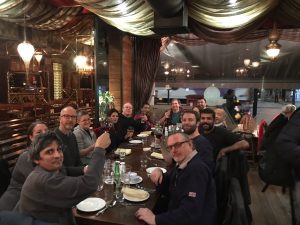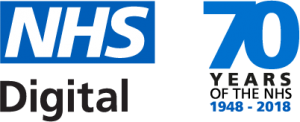New paper accepted in Statistics and Computing on “Learning Bayesian Networks from Big Data with Greedy Search“.
Category: Uncategorized
IDA / BSEL Christmas Party 2018

IDA Group to advise MHRA / NHS Digital
Nicky Nicolson and Leila Yousefi at IDA 2018
Special Track at IEEE CBMS organised by the IDA Group
Please consider submitting your work to the special track on explainable AI at IEEE CBMS this year. Deadline for submissions is 14 Jan 2019!
Poster accepted in Intelligent Data Analysis 2018 – Mashael Al-Luhaybi
Title: Identification of Student “Types” from Online Self- Assessment Temporal Trajectories With Dynamic Time Warping for Performance Prediction
Authors: Mashael Al-Luhaybi, Leila Yousefi, Stephen Swift, Steve Counsell and Allan Tucker
Affiliations: Brunel University London (UK)
Conference website: https://ida2018.org
Spotlight Presentation Slides: Here
IDA 2018 Call for Posters
New PhD student
Welcome to Ben Evans who has been awarded a prestigious London NERC DTP scholarship on the project “A global canonical image data set for automatic species classification” working with the Zoological Society of London and Google.


New Seminar Series in IDA

We have a new funded seminar series in the IDA group starting in October 2018 on the theme of “Opening the Black Box”.
Please look out for details on the website here in the upcoming months
Summer Short Course - Data Analysis and R (11th-12th Jul)
Making Sense out of Software Engineering Data And an introduction to R
Prof Sandro Morasca, Università degli studi dell’Insubria, Italy
The FREE summer short course (funded by Erasmus+) was organised by Prof Martin Shepperd on 11-12 July, 2018 (13:00-17:00 in WLFB208).
The course addressed the techniques that can be sensibly used to extract knowledge out of Software Engineering data acquired via experiments or routine data collection in industrial contexts, to make it practically useful. The course described and critically discussed a number of data analysis techniques, by explaining their preconditions and their outcomes. The course illustrated both basic, traditional techniques and innovative ones, like those based on Robust Regression or machine learning. Also, it explained how the models obtained can be validated.
A big thank you to Sandro and Martin for running this fantastic short course.
Lecture slides can be found here.

